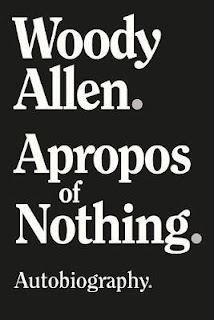10. Spiritualized - Everything Was Beautiful
We are at a point when every new Spiritualized album could be their last. That is an uncomfortable thought. Having said that, if Everything Was Beautiful is the end (and it does seem likely) then this is a proper farewell. From the sweet singalong "Always Together With You" to the epic closer "I'm Coming Home Again", this is equal parts noisy beauty and beautiful noise. A masterful album.
Best song: "I'm Coming Home Again"
9. Built To Spill - When The Wind Forgets Your Name
Just do not let a bad cover get in the way of a good album, and you will be all right. Built To Spill's latest is quietly brilliant. Shimmering melodies, controlled guitar outbursts and the childish whimsy of Doug Martsch's voice. I think this should rank among Built To Spill's best ever albums.
Best song: "Comes A Day"
8. Ezra Furman - All Of Us Flames
All Of Us Flames is a hodgepodge of styles, moods and even sound quality, but I would say that it all works to the album's advantage. Ezra Furman is such a great songwriter that the music works whether we are talking about anthemic rockers ("Throne"), lo-fi bedroom pop ("Ally Sheedy In The Breakfast Club") or confessional acoustic balladry ("Come Close").
Best song: "Lilac And Black"
7. Alela Diane - Looking Glass
To me, Alela Diane just sounds timeless. Time and time again she offers the perfect escape with that voice and the wistful yet elated atmosphere of her albums. Which, however, would not mean as much without Alela's consistently great and nuanced songwriting. Looking Glass effortlessly switches from piano to orchestration to acoustic guitar and it all works beautifully. "Dream A River" is something else.
Best song: "Dream A River"
6. Alex Cameron - Oxy Music
First of all, a confession is in order: in spring and early summer, I was downright obsessed with this album. I could not get enough of its clever synth pop that revealed songwriting of such depth that made everything else pale in comparison. The wit of "Cancel Culture"? The chorus of "Sara Jo"? The lyrics of "Best Life"? The coda of "Oxy Music"? This is genius stuff, and the odd thing is that I had never really cared for Alex Cameron before he released this album.
Best song: "Dead Eyes"
5. Fontaines D.C. - Skinty Fia
As ever with Fontaines D.C., their latest is a tasteful and impeccably realised album. Skinty Fia opens with a bubbling bass guitar and an Irish chant and just grows and builds incessantly before becoming the band's signature statement. However, they managed to better it with the closing "Nabokov" which is all attitude, balls and charisma. In between, it is the usual deal, literate and propulsive rock music with an occasional accordion thrown in for good measure.
Best song: "Nabokov"
4. Florence + The Machine - Dance Fever
Once again, I had never been convinced by Florence Welch before the sweeping chant in the second half of "King" really got to me. And all of a sudden, Dance Fever won me over. With the understated beauty of "Morning Elvis", with the protean "Choreomania", with the charming menace of "Daffodil", with the instant pop classic "Free" - how could it not?..
Best song: "Free"
3. Black Country, New Road - Ants From Above
While I thought their debut was a little overhyped, there was nothing wrong with Ants From Above. It is both challenging and oddly accessible, it features complex arrangements and magnificent melodies (if you are looking for instant gratification, try the chorus of "Chaos Space Marine"). The album is sometimes sparse, sometimes abundant and it never really lets up (the twelve-plus minute epic that closes the album holds your attention all the way through). Ants From Above is like a very intense lover whom you really love.
Best song: "Concorde"
2. Kiwi Jr. - Chopper
There is a slight concern that Black Country, New Road take themselves a little too seriously. No such problem here. Kiwi Jr. do nothing else but write some of the most exciting and irresistible melodies in music today. If the synth line that propels "Unspeakable Things" leaves you cold, check your pulse. Chopper is tuneful, clever, charismatic - and, last but not least, it is great fun.
Best song: "The Extra Sees The Film"
1. Luke Haines & Peter Buck - All The Kids Are Super Bummed Out
A sprawling no-prisoners-taken double LP that is also the greatest collection of Luke Haines's songs in years (not that he has ever released a bad album). The first side is mostly an onslaught of stomping, glammed-up, ear-splitting rockers and the second side is a diverse pop set from one of the greatest living songwriters. However, it is the three-song punch in the middle ("When I Met God", "Minimalist House Burns Down", "Exit Space") that convinced me that this was far and away the best album of 2022.
Best song: "Minimalist House Burns Down"







